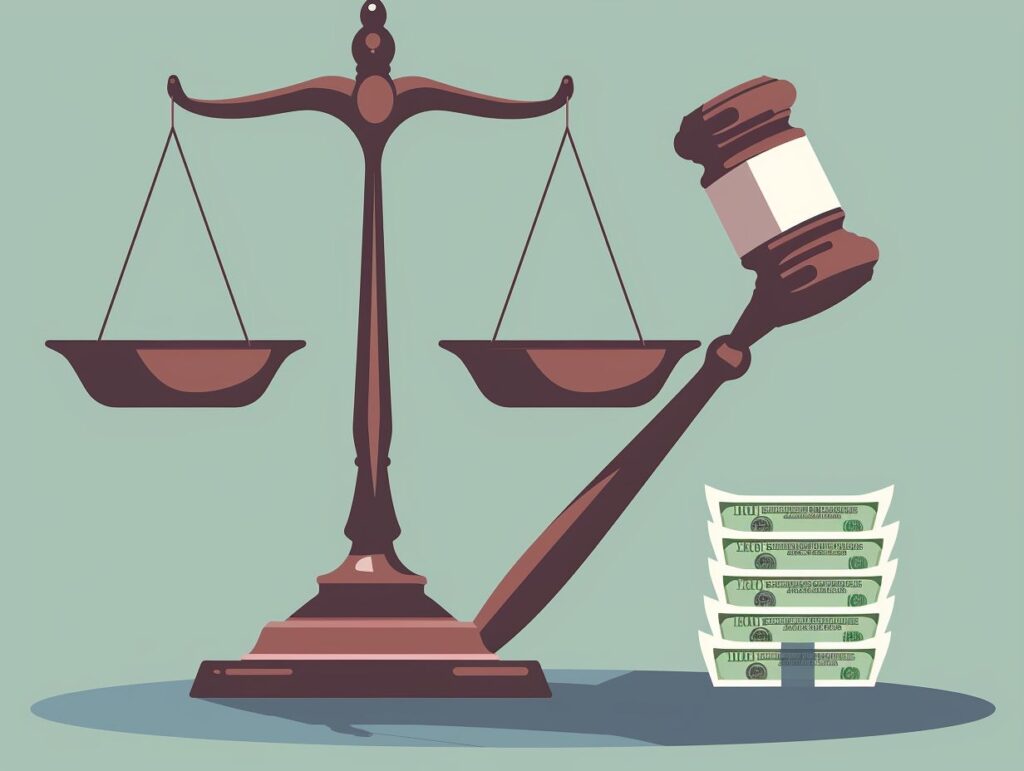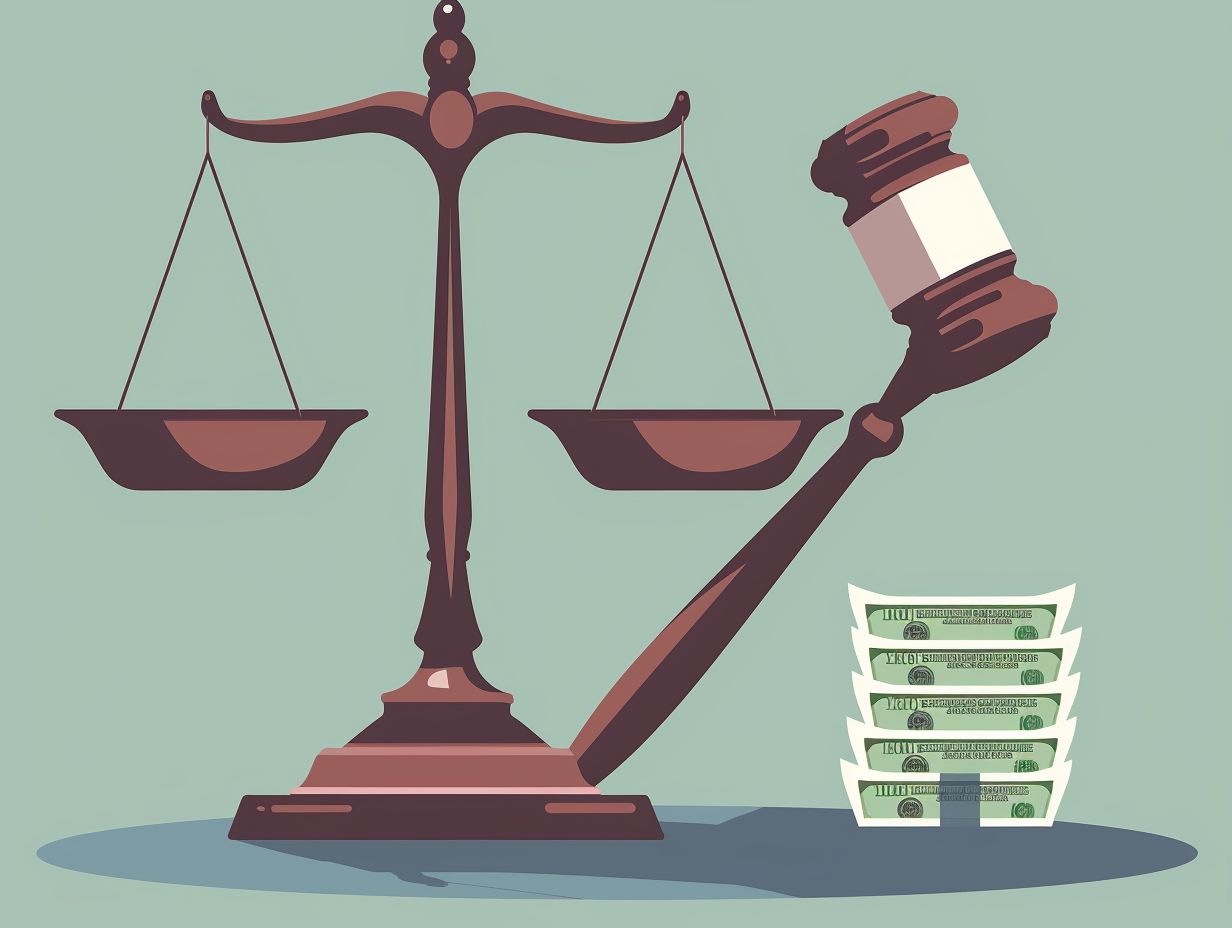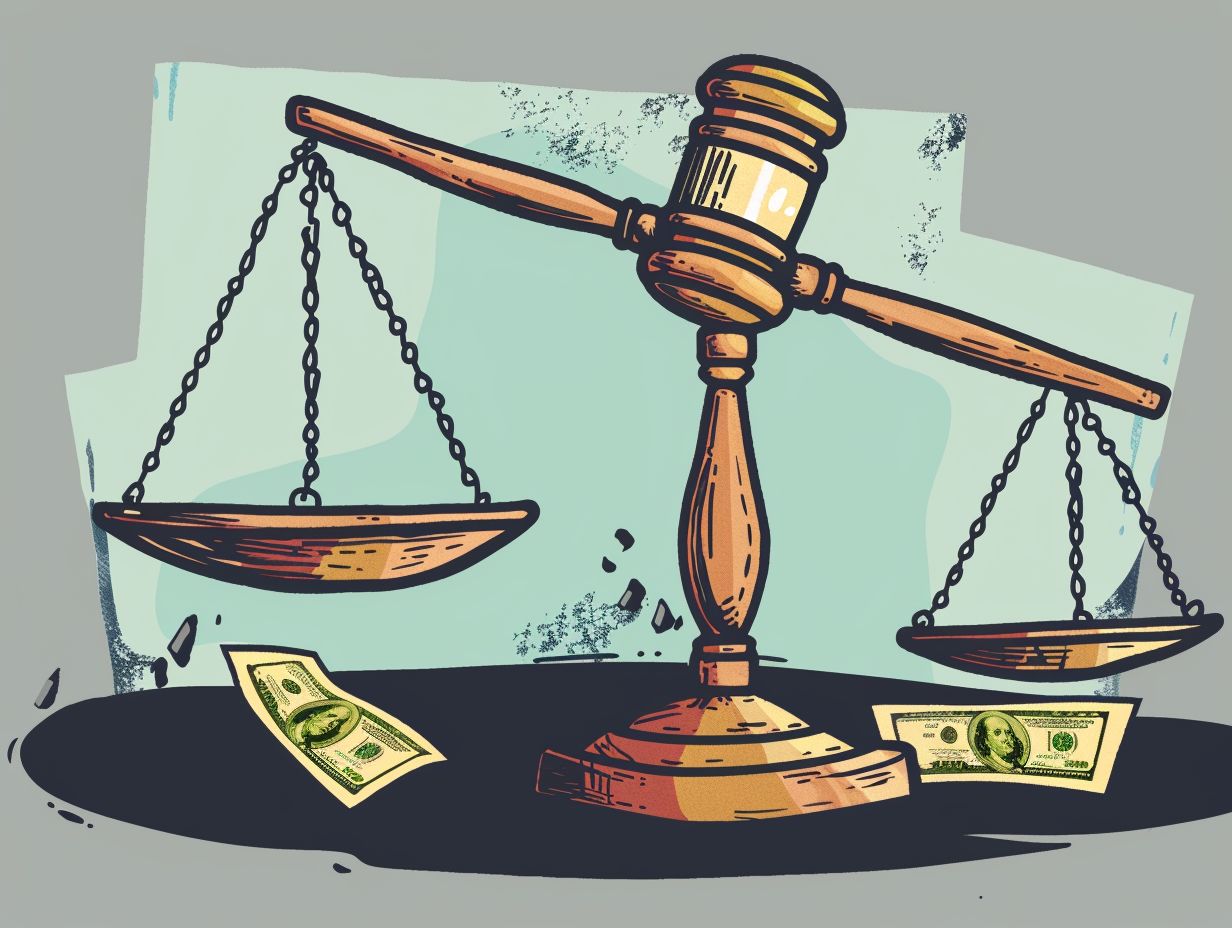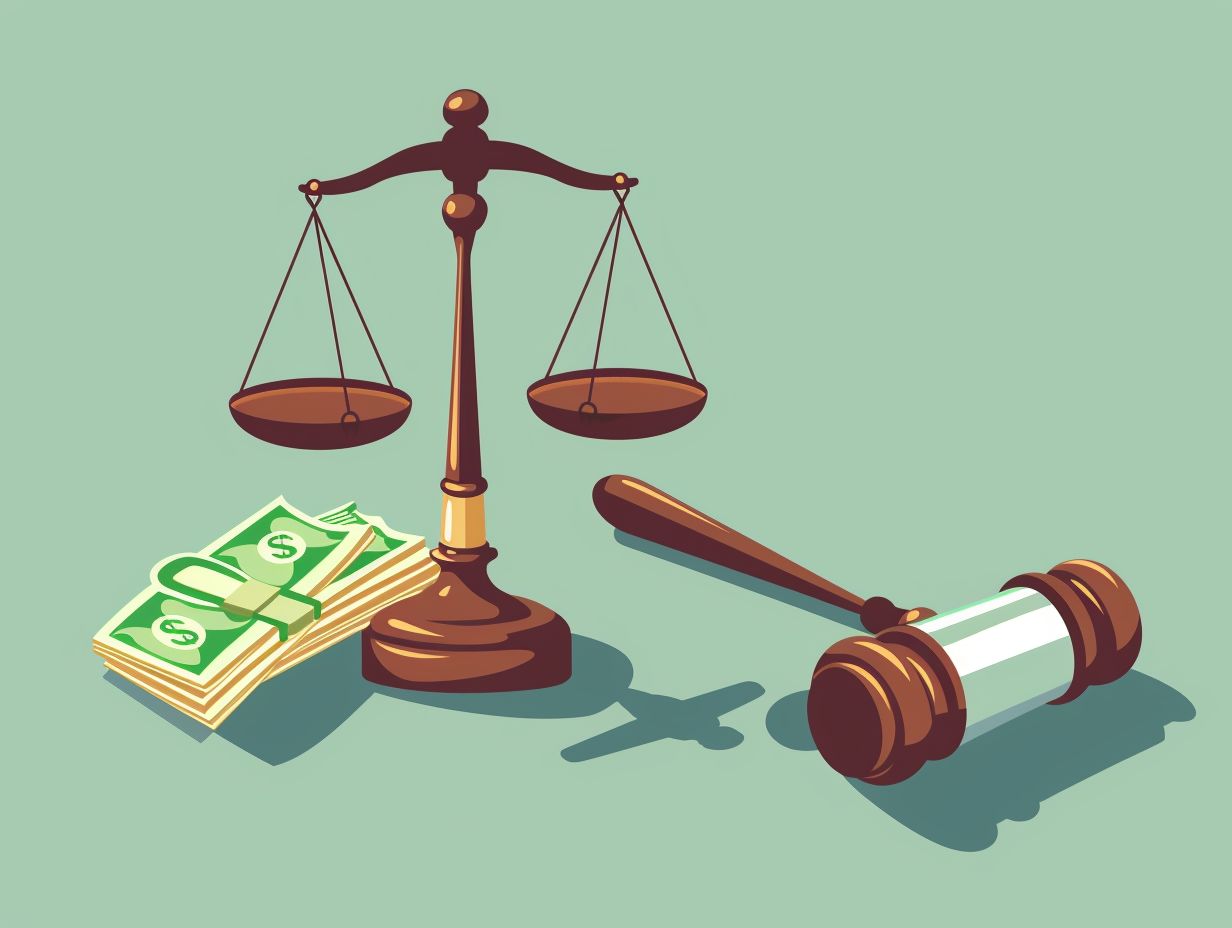Punitive damages can play a significant role in Florida personal injury cases. Understanding when and how punitive damages are awarded in Florida, as well as the factors considered in determining the amount, can be crucial for both plaintiffs and defendants.
This article explores the calculation of punitive damages, the role of the jury in awarding them, and the types of cases that are more likely to result in punitive damages.
We will delve into the impact of punitive damages on the defendant, whether they can be covered by insurance, and any limits or exceptions that apply in Florida personal injury cases.
Join us as we navigate the complex world of punitive damages in Florida.
What are Punitive Damages?
Punitive damages are monetary penalties awarded in legal cases to punish the defendant for particularly egregious or malicious behavior and to deter similar conduct in the future, rather than to compensate the plaintiff for any injury suffered.
How are Punitive Damages Different from Compensatory Damages?
Punitive damages are distinct from compensatory damages as they aim to penalize the defendant and discourage future wrongful behavior. In contrast, compensatory damages seek to reimburse the plaintiff for actual losses or injuries sustained.
For instance, in a scenario involving a car accident where the defendant was driving under the influence, punitive damages could be granted to not only cover the victim’s medical expenses and property damage (compensatory damages) but also to convey a message that such irresponsible actions will not be tolerated.
Conversely, compensatory damages might be awarded in a breach of contract situation to address the financial losses suffered by the plaintiff due to the other party’s failure to meet their contractual obligations.
What is the Role of the Jury in Awarding Punitive Damages?
The jury’s role in awarding punitive damages involves reviewing the evidence presented, assessing the severity of the defendant’s actions, and determining an appropriate amount to both punish and discourage future wrongdoing.
Jurors meticulously review testimonies, documents, and expert opinions to grasp the extent of harm caused by the defendant. They must determine whether the conduct was intentionally harmful or egregiously negligent, surpassing ordinary carelessness. The gravity of the defendant’s conduct significantly influences the decision on punitive damages. In this process, jurors take into account legal precedents, societal norms, and the financial standing of the defendant to establish a reasonable and equitable punitive damages award.
What Types of Personal Injury Cases are More Likely to Result in Punitive Damages?
Personal injury cases that are more likely to result in punitive damages typically involve defendants whose conduct was egregiously reckless, intentional, or malicious, such as cases of gross negligence, fraud, or intentional harm.
These types of cases often revolve around behaviors that go beyond mere negligence, demonstrating a clear intention to harm or deceive. For instance, in cases of medical malpractice where a healthcare professional intentionally misleads a patient regarding their treatment, punitive damages may be pursued.
Similarly, in product liability cases, if a company knowingly releases a defective product that causes harm to consumers, punitive damages could be awarded to deter such reckless behavior. Courts may also consider punitive damages in cases of workplace discrimination or harassment, where the behavior is deemed particularly egregious and harmful.
What is the Impact of Punitive Damages on the Defendant?
Penalties can affect the defendant in various ways, such as financial consequences, harm to their reputation, and serving as a deterrent against engaging in similar misconduct in the future.
Can Punitive Damages be Covered by Insurance?
In most cases, punitive damages are not covered by insurance as they are intended to punish the defendant directly and not to be mitigated by insurance policies. These damages are typically awarded by a court to penalize the defendant for their egregious behavior, rather than to compensate the plaintiff for their losses.
Insurance companies see punitive damages as non-insurable because they are meant to deter future misconduct and hold individuals or entities accountable for their actions. There are exceptions to this rule. Some insurance policies may provide coverage for punitive damages in specific circumstances, such as in cases involving professional liability or intentional torts.
When punitive damages are not covered, the defendant is personally responsible for paying the amount awarded, which can have significant financial implications and serve as a deterrent against unlawful behavior.
Can Punitive Damages be Reduced or Eliminated?
Punitive damages may be subject to reduction or elimination by the court if they are considered excessive or unfair, based on legal criteria and in relation to the compensatory damages granted. This process can be initiated by a post-trial motion from the defendant or through a review of the jury’s decision on appeal.
Courts typically evaluate punitive damages by considering factors like the defendant’s conduct’s reprehensibility, the ratio of punitive to compensatory damages, and the potential impact of the punitive award.
For example, in the case of BMW v. Gore, the United States Supreme Court established boundaries on punitive damages, emphasizing that disproportionate punitive awards could infringe upon due process rights.
Are There Any Limits on Punitive Damages in Florida Personal Injury Cases?
In Florida personal injury cases, there are statutory limits on punitive damages in place to prevent them from being excessively disproportionate. These caps are typically set at three times the amount of compensatory damages or a specific monetary limit.
What is the Cap on Punitive Damages in Medical Malpractice Cases?
In Florida medical malpractice cases, there is a cap on punitive damages typically set at three times the amount of compensatory damages awarded or $500,000, whichever is greater.
This cap on punitive damages serves as a form of protection for healthcare providers, aiming to prevent excessively high payouts that could potentially bankrupt medical professionals or healthcare facilities. By capping punitive damages, the law seeks to strike a balance between ensuring compensation for victims of medical malpractice while also safeguarding the healthcare system from unsustainable financial burdens.
For instance, if a jury awards $200,000 in compensatory damages, the punitive damages cannot exceed $500,000 in Florida, even if the jury recommends a higher amount.
Are There Any Exceptions to the Cap on Punitive Damages?
There are exceptions to the cap on punitive damages in Florida, specifically in cases involving intentional misconduct or cases where the defendant’s actions were primarily driven by unreasonable financial gain.
In these scenarios, the courts might decide that the standard cap on punitive damages is insufficient to effectively penalize the defendant or discourage similar behavior in the future.
For instance, if a company knowingly disregarded safety regulations resulting in significant harm to employees, the punitive damages cap could be removed to ensure accountability and justice. Similarly, if an individual committed fraudulent activities solely for the purpose of maximizing profits at the expense of others, the court could adjust the cap on punitive damages to reflect the seriousness of the misconduct.
Frequently Asked Questions
What are punitive damages?
Punitive damages are a type of monetary compensation that can be awarded in a personal injury case. Unlike compensatory damages, which are meant to cover the victim’s losses, punitive damages are intended to punish the at-fault party for their actions.
How are punitive damages determined in Florida personal injury cases?
In Florida, punitive damages can only be awarded if the defendant’s actions were intentional or grossly negligent. The amount of punitive damages is decided by the jury and can vary greatly depending on the severity of the defendant’s conduct and the harm caused to the victim.
What is the purpose of punitive damages in Florida personal injury cases?
The main purpose of punitive damages is to deter the defendant and others from engaging in similar conduct in the future. By imposing a financial penalty, the court hopes to prevent similar harm from happening to others.
Are punitive damages available in all Florida personal injury cases?
No, punitive damages are only available in specific types of cases where the defendant’s conduct was particularly egregious. These can include cases involving fraud, intentional harm, or gross negligence.
Can the amount of punitive damages be reduced or increased in Florida?
Yes, the jury has the discretion to increase or decrease the amount of punitive damages based on the circumstances of the case. However, there are limits in place to prevent excessive or unjustified amounts from being awarded.
How do punitive damages affect the overall outcome of a Florida personal injury case?
The inclusion of punitive damages can significantly impact the outcome of a personal injury case. Not only can it provide additional compensation for the victim, but it can also send a strong message to the at-fault party and others about the severity of their actions.


























Rate this article:
No Comments yet!